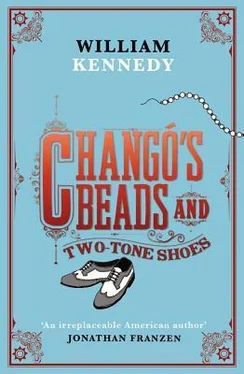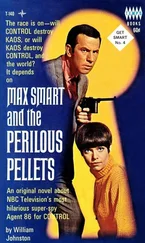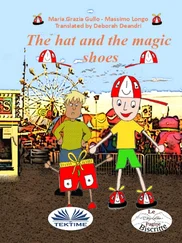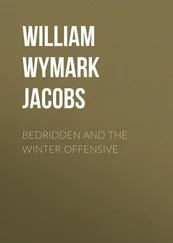They circled the block and Matt went into Hapsy’s, a small crowd out in front, a mecca tonight since so many legal downtown bars were closed by the tension. Hapsy had no bar in his place, more like a small grocery. He was a puffy black man wearing a skullcap cut from a fedora, said he hadn’t seen Tremont. Among the crowd Matt saw Cole Travis sipping on a bottle in a paper bag. Claudia had taken Matt to see Travis and his wife, trying to get them help. They lived in a cellar across from Tremont, and over the winter Travis had chopped out his ceiling beams to feed the stove that took up half the cellar and was too hot to sit near even when it was below zero. Plumbing didn’t work, no fridge, and Travis and his wife were deep into the wine; no job, no prospects, no friends, no money; how do they pay the rent, how do they get the wine? Two of the sorrowful mysteries. Matt talked to the city housing chief, brought students from Siena to clean, fix the beams, fix the toilet. But Travis kicked everybody out saying I’m movin’ outa here.
Matt told the chancellor of the diocese about Travis (during the same visit when he presented his list of twenty-two whorehouses) and said we gotta help this man. The chancellor said the only thing that will save those people is religion, which Matt used without attribution in his next sermon — a discourse on Bonhoeffer’s cheap grace and how it relates to the abstract, nebulous, gaseous blather that passes for morality in contemporary churches. Grace is a high-end item. You’ve got to work at it. Is it a healing church? Is the church the light on the mountain? Oh, yeah. Is the church the salt? Oh, yeah. What Bonhoeffer knew was the imperative to be extraordinary and Matt also threw in Augustine’s take on God: higher than my highest. I’d work day and night down here if they’d let me — that was Matt’s dream. Find a way to help the Travises. I beg for a floor to dance, a room to sing, a floor without walls, a room without ceiling, and when my prayer is outworn, there is no sap, no juice, no suckle. When each day is a dead mother, I remember when, and at that point the memory has sap, juice and suckle. Oh, yes it does.
For two years prayers had been coming to Matt and he wrote them down, direct from soul to page. He believed they were God’s truths, also his own, and the prayers were fervent but querulous, for the God he was writing to was a muddle, no way around it. “Father, I walked down a street cobbled for pushcarts and hooves. Is this you?”. . “Father, I seek soil, not dust. . Soil is a full hand.”
Quinn said he sounded like a dealer who liked the long odds, but Matt didn’t expect his questions to make it to the big prayer book. “God shorted me,” he told Quinn. “He knows I’m no poet. But the prayers keep coming. I stick them in the sock drawer until I’ve got enough to send to an editor, and they do publish this stuff, not under my name, I’m not that egotistical, or that brave. I like to quote Paul on this—‘What I do I do not understand, for I do not do what I want.’ No way to do what I want.” What’s more, all prayer henceforth will be private. The political church and the pious polity have delivered their favored dictum on communion: Let there be silence.
Within the soul-hollow an abyss,
A dead child’s bed, a widow’s cell,
A Cain flushed of rage,
A voided snail shell.
My plea: I starve for the Great Fill.
You alone fill my God cave.
Father, bait and hook these predators.
Bags weigh heavy as I walk down an alley
Seeing my shadow thin on wet cobblestones.
To ease the burden I stop walking.
I cannot move.
This is a God tomb.
Do I hold onto this lie?
My joy, a morsel. My peace, a hovel.
A split-tongue never shields a traitor long.
The answer is surrender,
The price a shriveled soul.
But I am the dream of God.
If I drop the worry cloak,
If I cool the boil within,
If I cease dogging my will,
If I leave the carcass in your hands,
If I quit the God match, the God dare,
Then let them have their silence.
But I will not. No, I will not.

Quinn made his case to Doc Fahey about Tremont — the faux assassin as a provocateur’s dupe — standing in the lobby of the Palace Theater as police were closing it down after the death of the white youth. Doc was reasonably sympathetic; he’d known Tremont for years, one of the rocks on the street, not a mean bone in him, but you can’t trust a wino, and with that AR-15 and the Mayor as his possible target, real or unreal, Tremont wasn’t going to get the kid-glove treatment.
“Just so he’s not shot on the street,” Quinn said. “He did nothing illegal.”
“If he keeps the gun in its case he’ll be all right,” Doc said. “The Chief gave orders today if anybody shoots, burns, loots or rapes, blast ’em. We all got twelve-gauge with twenty rounds of double-aught buck, and if one of the boys sees Tremont flashing that AR-15, he’s one gone gosling. The Chief served five years in the Pacific and he’s tough.” Doc was wearing his 1956 narrow-brim gray straw hat with a black band, his equivalent of a riot helmet. He was natty, as usual: a two-button dark gray suit with slash pockets, black silk tie, cordovan wingtips.
“I’ll have Tremont keep the gun under cover,” Quinn said.
“Then maybe he won’t have a problem. I’ll be somewhere downtown. Page me through the switchboard, I’ll be there in five minutes, unless Albany explodes. White guys in a car threw Molotovs at blacks over on Clinton Square and we hear whites are tooling around with shotguns. I already heard vengance talk for this thing here.”
Quinn had called Jake Hess after his interview with the Mayor about some way of surrendering Tremont, and would Jake represent him if he did surrender?
“Savior of assassins, is this a new facet of your career?” Jake asked.
“My grandfather quoted Montesquieu that the people should be judged by laws, and the lives of the lowest subject should be safe, but that the Pasha’s head should be always in danger.”
“And you want me to represent the man who endangered the Pasha’s head.”
“The Pasha was in no danger from Tremont. I just want him safe and judged by the law. He qualifies as one of the lowest subjects in this republic, and he’s a good guy.”
“I never quarrel with Montesquieu,” Jake said. “Tell me when to show up.”
Quinn could feel the tension in the Palace lobby — it was in the air like pollen. A thirteen-year-old white boy had been hit on the head by a black teen, or maybe he was pushed or fell down some balcony stairs, and he died with his pockets inside out. Doc said this was the third incident in the last hour, in or outside the theater, of menacing black kids asking white kids for money. One white who didn’t ante up was hit with a bottle. Police were looking for witnesses but Palace patrons only wanted their money back. Doc said six blacks had been arrested and one was a Brother, Roy Mason.
“On what charge?”
Doc didn’t know.
Quinn had seen the film Up Against the first day it played the Palace, for he knew Julian Stewart, the film’s star as well as its scriptwriter. Quinn had worked with Julian on the Post in Havana in 1957 when Max was editor. Julian was doing rewrite and copyediting when word came to Max from on high to fire Julian. He was a New York lefty playwright and actor and his Cuban wife, also black, was a communist. Max refused to fire the man for his color and his wife’s politics and so Max was fired. Your shining hour, Max, no matter what else, you son of a bitch.
Читать дальше













